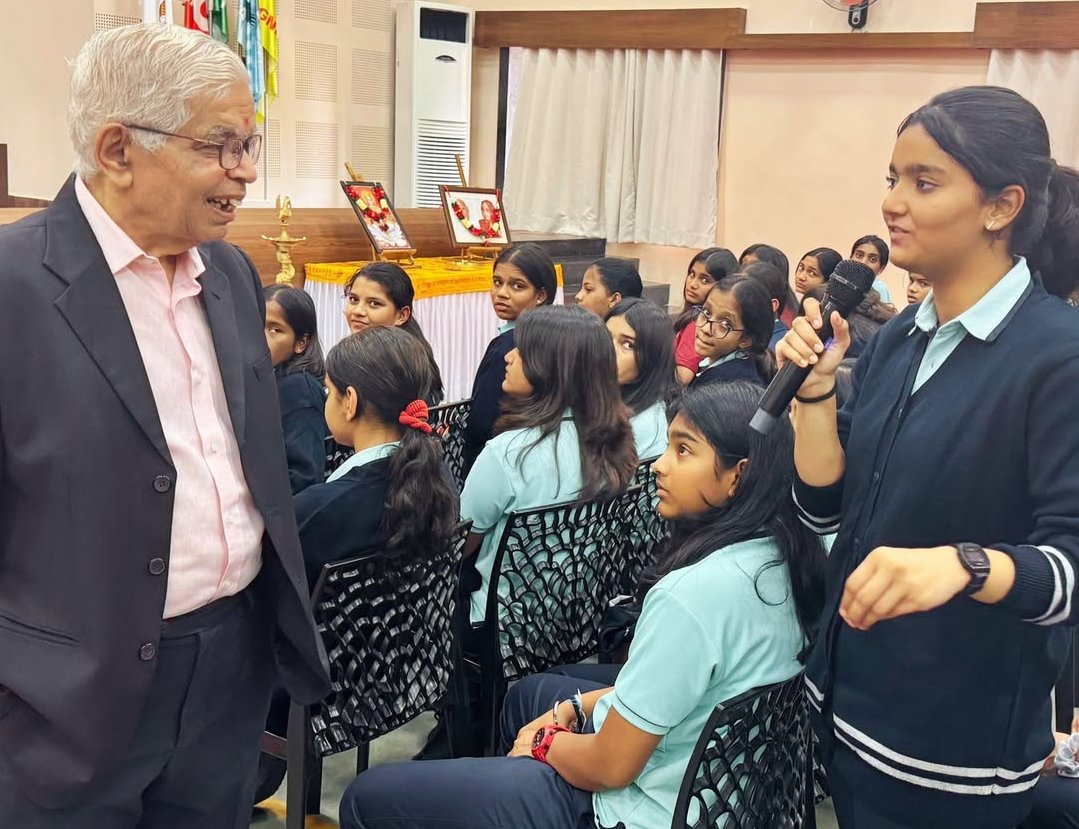
Guiding the Next Generation of Thinkers: An Interaction With Prof. Arvind A. Natu
SS: Hello sir. I am Swarnendra Saha from Team InScight and today I came here to interview you. I hope you are okay with it.
AAN: Oh yes.
SS: Okay, Let’s start from the very beginning. How did you get here? By that I mean the point where you sit today.
AAN: Okay. I come from a very very normal family with a lower middle class family of the country and from the age from all my college days I had done my education of my own because my parents had never seen the doors of the school.
SS: On my own means?
AAN: I mean I earned money.
SS: From school days?
AAN: No. From my college days.
SS: Tuition Parathey the aap? You gave tuition ?
AAN: Tuition parathe nahi, I did anything you can imagine, you know; Labour, paper and everything else that is possible.
SS: Okay.
AAN: So I did that because somehow I wanted to learn. And I told my father that I’ll be on my own. When I came to Pune, I took admission in the college. Four years I passed basic chemistry with distinction and then I joined Pune University and passed out the MSc. This is all I was doing while I was working.
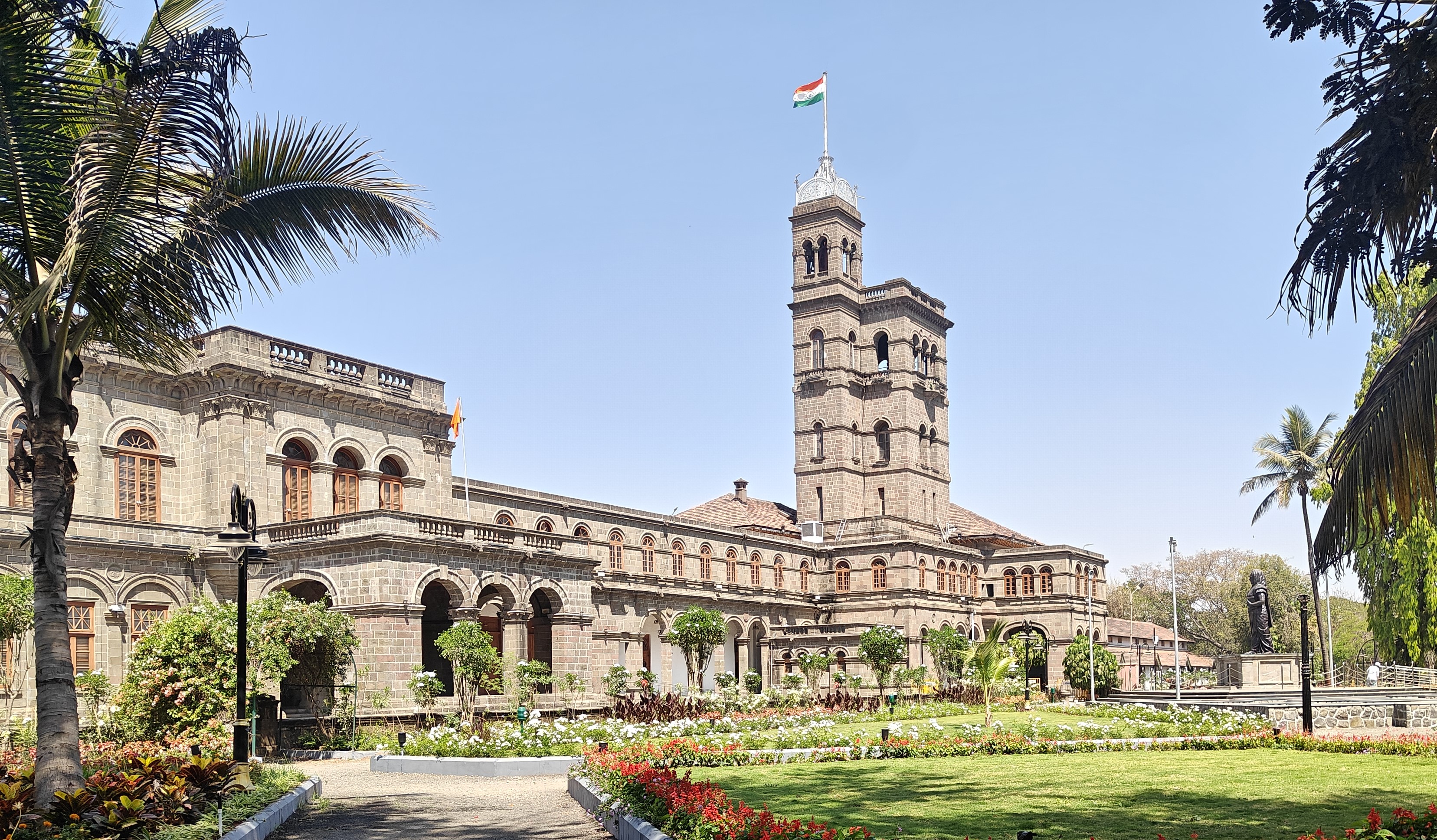
SS: So you are from a Marathi background?
AAN: Yes, yes. Marathi is my mother tongue.
SS: Okay, and you are around Pune?
AAN: No, my hometown is in Belgium, which is on the border of Maharashtra and Karnataka.
SS: Okay.
AAN: So and then after my MSc, there was a high, very high pressure on me that I must adopt a job and all. So I must do the job. But in between I met a girl who insisted that I must do PhD and that was my wife. I got married at a very, very early stage and when I was just 21.
SS: Sorry?
AAN: When I was just 21, I hardly passed MSc. But in those days that was a girl’s marriage age. So I married at a very early stage.
So my journey on the family front is very smooth. I became a grandfather at the age of 45.
SS: What? Really?
AAN: Yeah, and may become a great-grandfather maybe in another one or two years.
SS: So by 60 when you are at the retirement age…
AAN: …My both daughters got married.
SS: Wow. So you have a very big family.
AAN: No, my wife, me and two daughters. Okay. That was my family. And my bigger family was father, mother, his son, a brother and a sister. My parents took care of their education. I said I’ll take mine. And thus I wanted to do it, I was in a bit of a shift. But my wife insisted that you must do a PhD. There is no alternative for me. So I got a job in AFMC actually.
SS: AFMC?
AAN: Armed Forces Medical College, as a lecturer after my MSc.
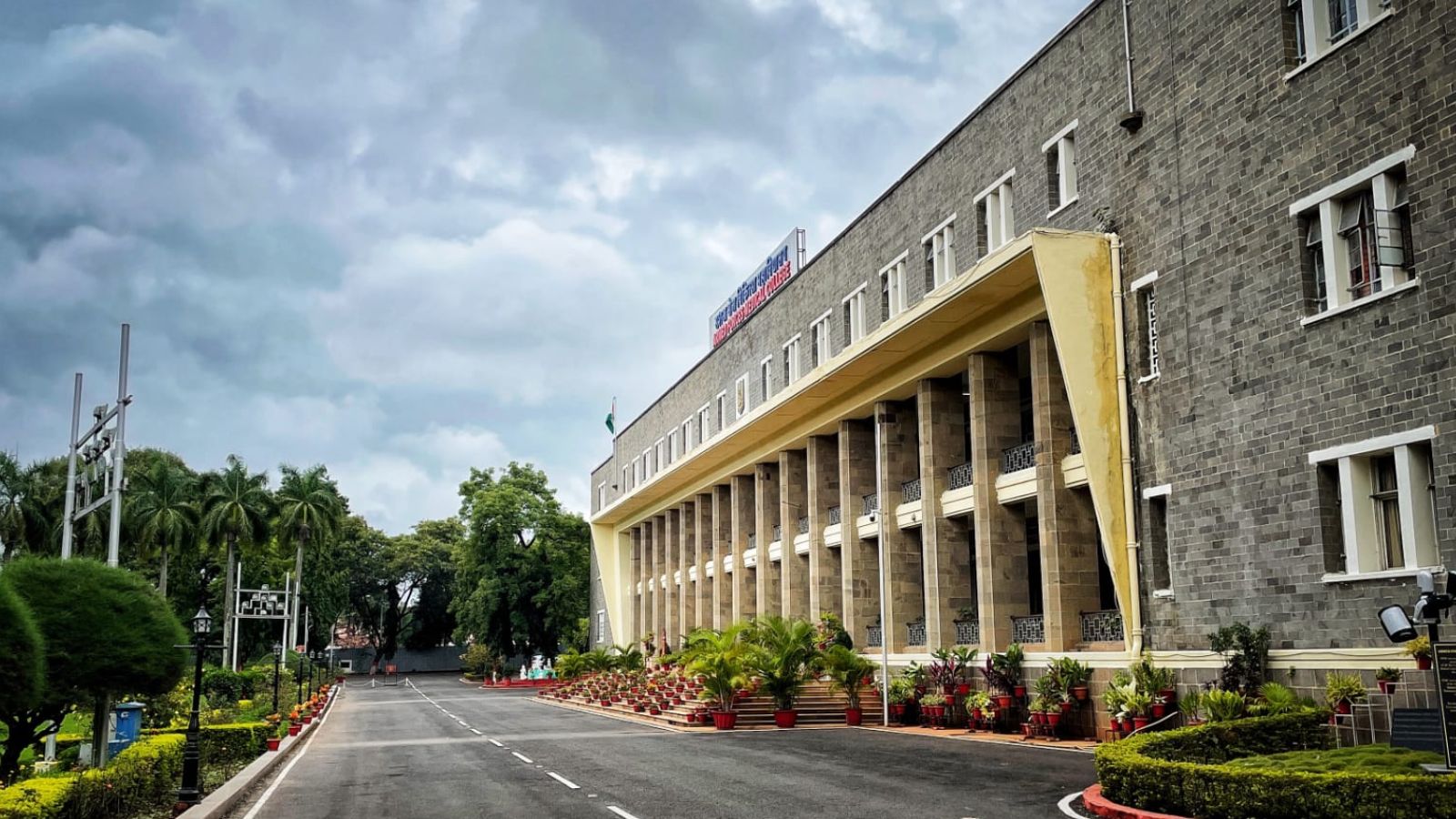
SS: But you did your…
AAN: Masters in Organic Chemistry, but still I was offered a job in AFMC.
SS: How?
AAN: That is the trick of the army. So I worked there for some time and then I joined NCL, National Chemical Laboratory. I was drawing 300 rupees as a fellowship which is unimaginable today.
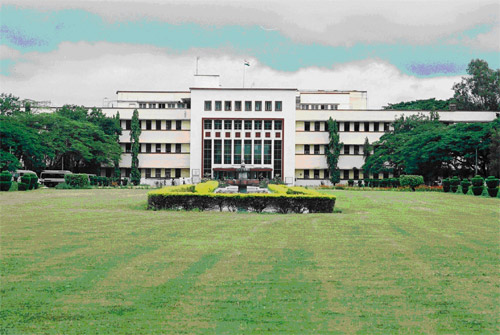
SS: But in those days it might be a good amount of…
AAN: Oh, maybe, maybe to some extent. My wife took up a job and we started both.
SS: She was also in academia?
AAN: No, she was my classmate, but she was a teacher.
SS: School teacher?
AAN: School teacher. And then we started our journey. In another first year after the marriage, my daughter was born. So when I was studying for my PhD, first paper, my daughter was already born. So it’s very, very unheard of nowadays, you know. But that is the thing. Then after doing all this business, I managed to get my PhD after a little bit of a long time because I was working all over there. And when I was there, I had no idea where to go. Generally people used to go to the US at that time for postdocs. Somehow I had some special love for Germany from day one. So I applied for a fellowship. In all over India there were 700 applications, out of which 9 were to be selected.
SS: Only 9?
AAN: Only 9.
SS: 10 minus 1, 9?
AAN: 10 minus 1, 9. And I was, my number was 2 in the merit list. So I could get wherever I wanted, you know. So then I went to Germany. I went to West Berlin. In those days it used to be called West Berlin because of East and West. The division was there. So I studied at Technical University Berlin, TU Berlin. But one thing, when I first went to Germany, there were three obstacles. Number one, I was a complete vegetarian fellow.
And there was no concept of vegetarian food. Forget about availability. No concept of what people eat if they can’t eat meat. Then, regular water was not available. If you ask for the water in the hotel, they’ll tell you that you have to take medicine. No regular drinking water. The concept itself was not there.
SS: But people, biologically, do need water to drink, right?
AAN: Yeah, soda, water and in Germany they say carbon dioxide, carbon. But no normal water, hardly anybody will drink. Then, and third was the worst language. Now everybody speaks English everywhere. In those days, no English. The place where I was staying in a small village, I was the only fellow who could speak English. This was a small village near Geneva. And I decided if I had to study in this country, my language has to be strong. So I spent four months of my life studying language, thorough language, regularly going to school, studying there. And what others could not achieve, I achieved. Three courses in four months. Generally, people finish first. So there was that I could finish. And then I joined as, by the time I went to Berlin, I could speak German and talk and all. Because I was not, I was knowing, although in the lab, you can manage with English.
SS: Do you remember the language tutorial?
AAN: Today? You can take my interview in German. Because, that is because my ties to Germany in my life are very, very strong. Then I took up a, after finishing my postdoc, and then I got the extension again.
SS: Your postdoc was in TU Berlin ?
AAN: TU Berlin.
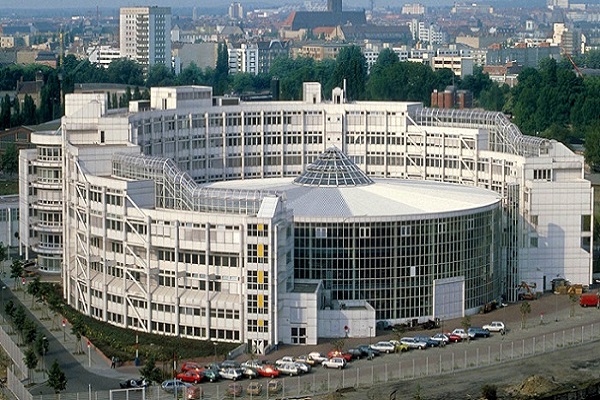
SS: Where was your PhD?
AAN: NCL. NCL.
SS: And in AFMC, you were a lecturer.
AAN: Yes. And then when I finished, I got twice the extension also. For four years I did postdocs. And then my professor asked, what you like to do? Would you like to go back? I thought, let me take the experience in industry.
SS: Industry ?
AAN: Industry. And that complete interview, I gave it in German language.
SS: Complete interview?
AAN: Complete interview. A to Z. And there was not a bit of a problem. And I managed to get the job as well. But I realized after six months, it’s better to come back mainly because we are not accepted in European society. Especially in German society, which was war, war born, I can say.
SS: Racism?
AAN: Yeah, it’s racism. And I tell you one thing, today also it is accepted. Today it also exists.
SS: In Germany?
AAN: Everywhere in the world. Let me tell you. You are respected only because of your brain and all of that. But when you enter into social life, …
SS: … You’re an external person, still out.
AAN: Yeah, yeah, still out. In India also it is the case. So that kind of thing is there. So I decided to come back by thinking, let me have, what do you say, let me have first class citizenship in the second class country, but not the other way around. So I came back, applied for a job in NCL again, and fortunately then I continuously served for more than 30-35 years in NCL.
SS: So your major part of your working life lies with NCL.
AAN: Yes, NCL.
SS: And then how did you come to Pune? I mean, IISER Pune?
AAN: I’ll just tell you some stories about my NCL life. That is also equally important. In the beginning, I started working on several things, natural products, synthetic chemistry and what not.
One day I met a gentleman who gave a completely different direction to my life. His name was Dr. Merchant. I was talking to him and we were coming in flight and then he asked me, my dear young man, what are you doing?
Then I was bubbling with enthusiasm, I did this, I did this and all of that. And then very calmly he said, my dear young boy, if you cannot use organic chemistry for either medicine or biology, it’s of no use. In this sentence he said, that opened up my eyes.
And I started learning biology, using biology textbooks at the age of 34 or something like that. So because I realized that for organic chemistry, biology is highly necessary, complementary, then you will be able to design your molecules properly and so on and so forth. So I took up, I took up for the so-called bio-organic chemistry, maybe DNA-based, protein-based, I worked on the diagnostics and several things.
And last, how the circle completes, I gave a complete course on biology and chemistry of DNA and RNA for PhD students in biology and chemistry in a German university, Bielefeld University.
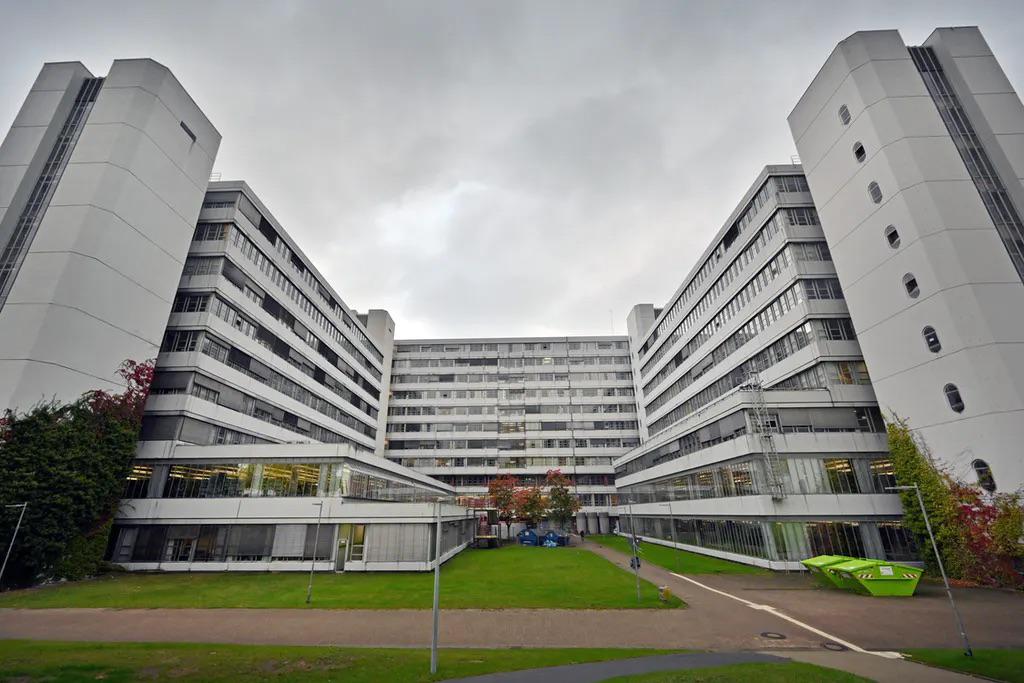
Of course, I didn’t give that course in German. Maybe the first 20-15 minutes, but later on it was difficult, because it was a 28 lecture course. So I said, I learned biology late, but completed this circuit to teach biology to German students in a university called Bielefeld University.
In between I had visited several universities and all other things in Germany, Europe, everywhere practically, to give talks and all of that. Its corollary is that chemistry, knowledge of chemistry must be used for societal needs. And that is where I entered into the pharma business.
SS: Pharma?
AAN: Pharma - pharma companies. I specialized myself in pharmaceuticals, synthesis, process development, all other things, impurity analysis, what not. So I was a director, board of directors of public pharma companies for three different companies.
SS: So you mean PSU companies?
AAN: No, no, regular private companies. I was a member of the board of directors in three pharma companies, and as a consultant to many national and international companies. Frankly speaking, I cannot remember how many companies I was a consultant for. Because later on, at the end of the day, I realized that if it is, our knowledge is not used for societal needs, then where is the point? The difference is, what is the difference between this theoretical or what we do is, first we create a nice problem, or we design a problem, and then try to solve it. Instead of that, can we take up a ready-made problem that is required, and then try to solve it.
According to me, the second way is preferred, because of course, some, all high science, technology needs high science, there is no doubt about it. So I worked for the pharma industry, I worked in antifungals, I used several things, including one Japanese and one Hungarian firm. I was also a consultant. So I spent my life in NCL fully, I enjoyed my life.
And then after that, in the last few years, there was one Dr. Ganesh, who was the first director, I said, we were sharing the lab, we were sharing the office, everything in NCL. And then we were discussing this project with students, how they don’t know anything, MSc, first class, kuch malum nahi hai (they don’t even know the basics). So there we took an essence that we must do something for that.
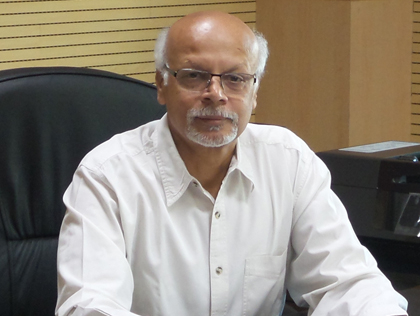
And it initiated, of course, that we were very small fish the whole time. Then there were great people like C.N.R.Rao, and all of the people joined, they inculcate a great tendency to develop eye service for this thing, mainly with two USPs. One is the inculcation of research at the graduate level, which is a really very good point.
And second, we also follow all the interdisciplinary teaching, research, maybe it is a biological, mathematics or mathematical physiology or molecular biophysics, or nanoscience, biocomputation, whatever. So these were the two USPs. And we had a lot of problems, it was not a very smooth life. The year 2006, when we started, we were given four months to start a so-called World Cross University, four months only. February 2006-08, 1st of August, ministry order, your institution must start on 1st of August. 24 students, four faculty members, with which we started, and a 10,000 square feet lab.
Today, 10,000 square feet is just a corner of some lab. But we started with that. Then slowly through many transitions, mainly because of the teamwork. And Dr.Ganesh had one - I must appreciate his leadership. Once he tells you something, you will never intervene. It’s a complete freedom you have. You can make a decision, you can do anything you like. He said, if you fail, I am responsible. So that kind of team spirit we enjoyed in bringing up IISER.
See, why I’m telling you this specifically, today, you might think that everything has come just on its own, you know, whatever you see today. But it’s not the case. We have learned it in a very hard way.
We went to the transit campus, after the transit campus, we came to the main campus, and now we are more or less settled. I can give you a small example. When we took up the land, it was completely stony with snakes, scorpions, bamboo jungles, big stones, and there was Nala, everything was there. And we had built up one building, somehow managed to get, which will take care of everything. Laboratories, classrooms, lectures, offices, everything together in one building. The hostel was also there.
But in the night, students used to be afraid. What we were doing, you know, we used to come in the night to sleep with the students in the hostel, just to give them courage, you are not alone, we are here. So like that, we developed that culture, the students-teachers relationship, and everywhere. And that’s why the Pune IISER is there. So that was one of the transits.
We took a lot of effort to develop that culture from day one. Number two, you might be surprised to get a faculty, it was a very difficult thing. Good faculty, because every faculty that will come will have one IIT offer, one IISc offer. So how to attract faculty? So we said you are the pioneer of the institute, you can do whatever you like. So like that we collected. You know, you might be surprised, in the beginning we went abroad to get good lectures, assistant professors. I went to Oxford, Boston, everywhere people went, and they tried to sell IISER Pune to the young postdocs who would like to come back. What else could we have done? If they didn’t come to us, we had to go to them. So that way we acquired very good faculty, that is for sure. And then from day one, our goal was to get the best infrastructure. Today in IISER alone, I think more than 200 students in IISER Pune. And this was possible because of the exact leadership and team spirit. This went up to recently, and then in 2019, I got a call from the ministry.
They said, we would like to have a BOG chairman for IISER Kolkata. There was nobody apt. So would you like to have it?
To be frank enough, I did not know what to say. Of course I knew, because there were several BOG chairmen who came and all. I was not sure of the exact nature of the job. Then I learned, I talked to many friends, and with their consultation, I felt that they said, you will be able to do the job. And from that day, just now today only, February 2019, as of today, I am carrying out this, my job. Many directors, interaction, everything.
And then slowly, slowly, this news spread. And then they said, oh, since you are taking Kolkata, why don’t you take Thiruvananthapuram also? So now, as of today, I am the BoG chairman of four IISERs.
SS: Four IISERs?
AAN: Yeah.
SS: Which ones?
AAN: Kolkata, Trivandrum, Berampur, and Bhopal.
SS: So even this month, you are traveling all the IISERs for convocation?
AAN: Just now I received an email from Berampur. Their convocation is also coming up.
One more facet of my whole thing, as I said, is I was involved in a lot of Indo-German collaborations. Educational institute, industry, science, everywhere. So four years back, I was awarded the Cross Order of Merit. This by a German president, which is the highest civilian award given to a foreigner.
SS: And you got that?
AAN: I got it. See, why I am telling you this, not because I am some great or anything, but people also should learn that besides research, you need to develop several things. For example, I must have translated more than 900 German pages in English. Translated several thesis, because that was my hobby. You should have some hobbies also. I had translated several theses, patents, everything.
So that was one of the things that I, that is very, which is very close to my heart for my collaboration efforts. Thus, nobody knows how the people are selected. Even the candidate doesn’t know that his name is being considered or anything.
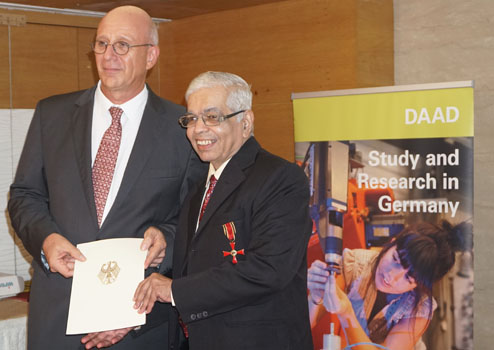
You don’t have to submit any bio-data for anything. It is at that level. And in our country, all civilian awards if you get, you have to go to Delhi and get it. This is the only award where the German president’s man will come to open it. At three o’clock in the afternoon he came. He left at nine o’clock by giving me that honor and all other things, medal, everything.
Forty minutes program and then he left. This is the, I thought I’ll just share this. This is exciting. Besides that I got several lifetime achievement awards and all other things. That is okay. This is a part of it. But this is something really. And I have been research ambassador, German research ambassador from 2007 onwards to facilitate the Indian students to go to Germany. We had the scheme.
I don’t know whether you know it. There was a one wise-scheme we developed where the third year or fourth year students from ISER can go to Germany for three months and take up that. Take up, they can, they’re to and fro fare and they’ll be paid some 700 euros per month. I have sent a minimum 13, 14 students every year from IISER Pune. This is a completely different passage from my chemistry administration and German.
Therefore I enjoy speaking German. If you ask me to give an interview, many times I also translate my e-mails in German and read it. Because then I’ll get practice.
SS: Sir, in continuation of your things, there are a couple of things that came up in my mind. Firstly, you yourself have come up, not from a very lucrative family. But you have built yourself up. In that light, today, in today’s scenario, IISERs do have students from various backgrounds. And keeping aside everything linguistic and others, only one parameter that becomes very strong is finance, economic background. So we have a good chunk of students from economically weaker sections. However, if we see the Fees structure, EWS students don’t have much respite. So my question to the BoG chair is, can there be any way to provide respite to those particular students whose sole criteria is nothing else but the fact they come from an economically weaker section?
AAN: And merit.
SS: Of course, merit. Yes.
AAN: So, now I tell you, I look after this. In the beginning, when we started IISER, we were following the INSPIRE scheme. That means top 1% in-state votes are only entitled to join IISER. So we’re selfish. We thought we don’t have to pay anybody, because if it is 1%, INSPIRE Fellowship, they’ll get 5,000 rupees. But then slowly I realized one thing. Only money cannot attract us. I must confess, I thought in the beginning money will attract everybody to IISER. Then we realized, no. And slowly we got rid of it. And then the question is, still our boys are good. So 70% or 60-70% they get the INSPIRE Fellowship.
Although it’s not much, it is 5,000 rupees. Then I will tell you how we solve the problem. There are several government schemes. For SC there is something, and all other schemes through which I got the fellow to IISER. And I said, please tell the students how to apply, what to do, and all that. So in IISER Pune, at least 80-85% students, they get the money.
But then we have Corporate Social Responsibility also. For example, we told Infosys that you pay for 30 students. So they paid. This way, we adjust. And if suppose amongst that somebody is not, in spite of doing this, he could not, then we take care. For example, I said that if it comes to that, I pay for the students.
SS: Something cannot be done for Kolkata or other IISERs?
AAN: Why not? The West Bengal government has plenty of these schemes. There are plenty of schemes. Fact is, there is no proper coordinator. So somehow we have to make an effort.
SS: Yes, because I mean each batch has about 200 students in ISER Kolkata. So if from the institute or from the government or from some agency, if efforts can be taken, I guess 200 students can be accumulated somewhere or the other.
AAN: Yes, through CSR. You need to try several ways. You can’t just sit at home and wait for this. Somebody has to coordinate with the West Bengal government. Our students’ merit is so high. Their merit is so high. They don’t get these kinds of people there.
SS: So the West Bengal government chief secretary is a part of BoG?
AAN: So being… But somebody has to go, approved from the office of the board of governors. And again, that fellow, that particular fellow, should have passion to do office. The problem is, if you don’t have passion, you can’t do it. We could build IISER only because we had just one passion, that we’ll do it and show it. And we kept on accepting different people.
SS: No, my thing is that, at least if this point comes up in the BoG meetings.
AAN: Oh, surely. I’ll tell you one thing. You don’t have to wait for that either. A proper fellow, who is well connected with the West Bengal government, can approach. There is one social welfare department, Samaj Kalyan. Then there are departments for higher education. So there are several ways of doing it. Provided, if somebody has passion, that his children should get this. I did it in the beginning to start with. Now I don’t do it. I have now put two, three fellows, faculty, similar faculty, who have some passion. They don’t do it. I am told, this approach will work. It can be done.
SS: My next question is that, given the present scenario, present international scenario, I mean, do you, as a teacher, suggest students go abroad to pursue a PhD or step back and try in India?
AAN: Depends mainly on the subject. There are some subjects or some areas, which are really equivalent to an international scenario. For example, if you want to go to quantum computing, I don’t think we have the real expertise.
All are theoreticians. Or there are many, many areas like this, where you have to go there. But in certain cases in biology and all, you can do it in India. Only you won’t have a thappa, or seal, that your PhD from US or UK.
SS: Is it required or does it matter? The foreign tag matters?
AAN: The foreign tag many times matters, while doing the, while, when you go for the interview. It’s a mentality issue. So if I say that, your PhD from IIT Kanpur, or IISc Bangalore, and you say, somebody else says, I’m PhD from Yale University, then they’ll say, oh, yes. You may get the edge of having a seal and the brand value attached along with.
This is not always, it is very difficult to generalize, let me confess also. But I feel in certain areas, you can do very well in India, there is no doubt about it, but in certain cases, you have to go abroad. And people have one wrong notion, that if you go abroad and fast.
Basically, according to me, our BS-MS degree is ideally to build the capacity.
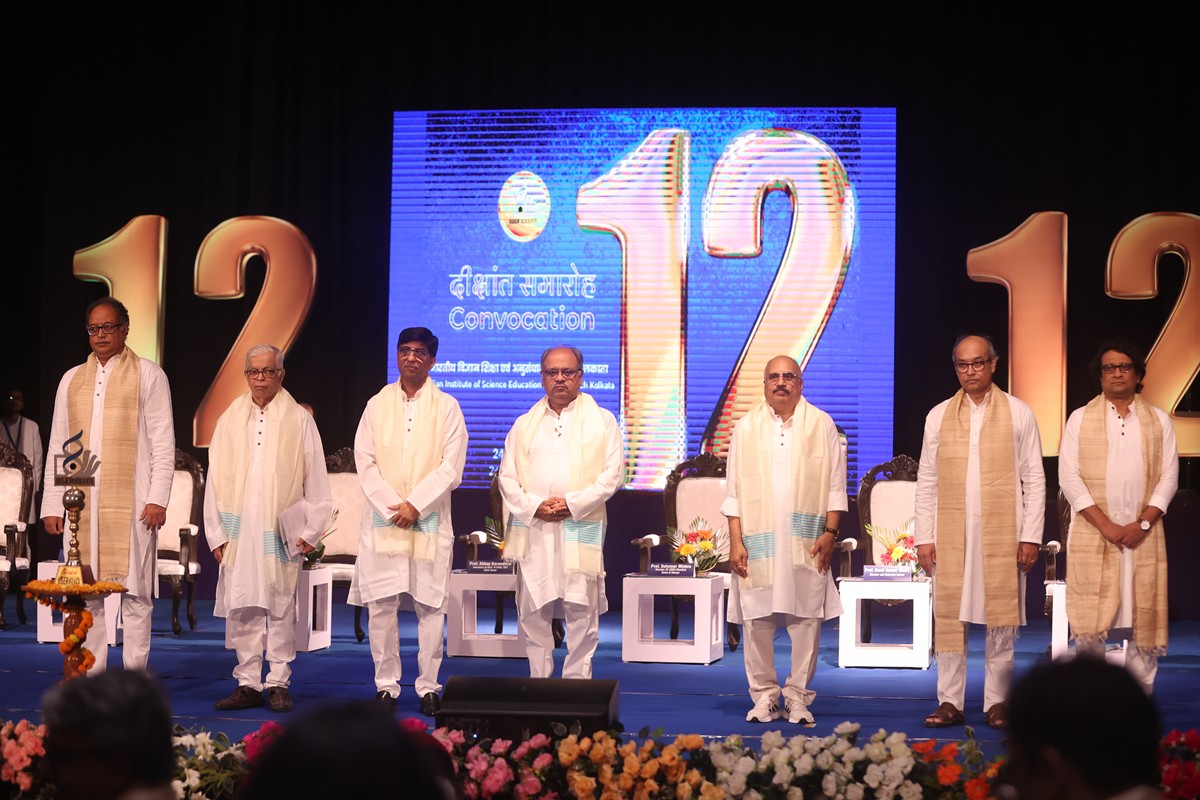
SS: Capacity? Of Students?
AAN: No. Analytical capabilities, nurture the creativity, presentation skills. These are all taught, according to me.
And at the end of fourth, or four and a half years, if you are well trained in this, you can accept any challenge you like, whether it is academics, whether it is industry, or some other jobs. When I say some other jobs, I would like to draw your attention to two things. One, I have sent several boys to law.
SS: Law?
AAN: Yeah. Because we don’t have patent attorneys in this country.
Ninety percent of our patents are in science and engineering, and our ten percent do not even have a science or engineering background. So many students are doing very well. This is number one.
Number two is content writing. Today everybody knows what content writing is. But before that also, many of our IISER students have joined content writing, and they are doing well. Because we don’t have that kind of good content writing. We don’t have people in science communication. We don’t have. By the way, I don’t know whether you know or not, two years back, the first student who stood first in CAT examinations was from IISER. He has joined, and I am among the first. So it’s not that you should only.
You can join UPSC, you can join MBA, there are several ways of doing it. It depends on how you use your capabilities. You can join industry, you can join anything you like.
SS: So how do you think a science student from IISER will do well if joining an MBA? Because that can be done by any student with any background.
AAN: MBA with science background plays a major role in all other affairs. How? For example, now the pharma industry, you take. Somehow I take examples all the time from the pharma industry. The pharmaceutical industry today needs youngsters with science backgrounds and MBA degrees. These three things: analytical capabilities, nurturing creativity, and presentation. And these capabilities you can use anywhere that you go in future. In any branch of science or any profession that you take. And I always encourage them if they say they would like to do this.
SS: Thank you sir for your time with us. We hope our present students will be inspired by your comments. Thank you.